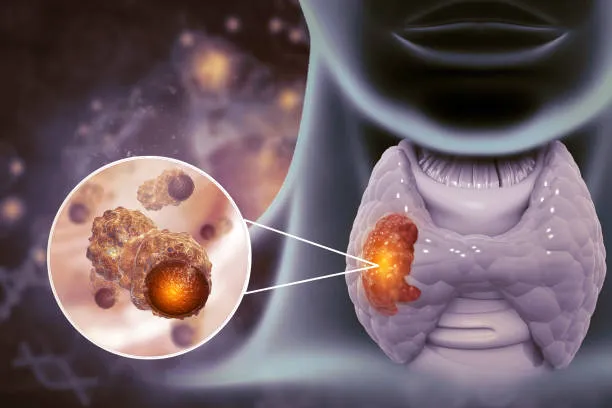
Introduction
Visceral hypersensitivity is a medical condition wherein the internal organs, like the stomach or intestines, are hyper-sensitive to pain or discomfort. Those with visceral hypersensitivity might experience heightened sensations of pain from normal activities that might not cause pain for other people. This article looks at what is visceral hypersensitivity, its causes, symptoms, and how it can be managed.
What is Visceral Hypersensitivity?
Visceral hypersensitivity is an abnormal sensibility or heightened response in the internal organs. It has conditions such as visceral hypersensitivity syndrome, in which the brain interprets the signals from the internal organs as more painful than the actual intensity. This often makes everyday sensations, like eating or digesting food, uncomfortable and painful.
For those who may be wondering, “what is visceral hypersensitivity?”, well it is a condition that occurs where the nervous system of one fails to process pain signals of internal organs properly. That sometimes can cause an increased feeling of pain in different places, such as the stomach, intestines, and even bladder. Visceral hypersensitivity syndrome, very often accompanies other gastrointestinal conditions such as irritable bowel syndrome, and is actually associated with chronic abdominal discomfort and pain.
Causes of Visceral Hypersensitivity
The cause of visceral hypersensitivity is not well-understood, but several factors contribute to it. Among the most common reasons for visceral hypersensitivity is the malfunctioning processing mechanism of the nervous system regarding pain signals. The central nervous system can misread signals coming from internal organs, thereby giving increased sensations of pain.
Nerve Sensitization
Over time, these nerves within the digestive tract become super sensitive to all normal sensations and can begin to react over sensitively. The reasons for inflammation, injury, or a possible infection to the internal organs of the abdomen make this so.
Stress and Mental Health
Visceral hypersensitivity also relates to stress. Stress can be the cause of the condition or exacerbate the symptom since it impacts the nervous system, thereby altering how the brain responds to pain. Those with anxiety or depression have a higher risk for the syndrome of visceral hypersensitivity since their psychological condition might have a lot to say with the symptoms.
Dysbiosis of the Gut Microbiome
New studies show that imbalance of the gut microbiome, or the community of bacteria in the digestive system, is possibly a cause of visceral hypersensitivity. Change in the normal gut flora leads to sensitivity in the gut and is likely to be sensitive to pain and discomfort.
Symptoms of Visceral Hypersensitivity
The symptoms of visceral hypersensitivity differ in different individuals but usually encompass:
- Chronic abdominal pain or discomfort, especially after eating or in the process of digestion.
- Gastrointestinal discomfort and bloated feeling even after taking small intakes of food.
- Throbbing or sharp, cramping pain in the abdomen.
- Nausea or stomach upset without an evident cause.
- Changes in bowel movements, such as diarrhea or constipation, are normal in patients with visceral hypersensitivity syndrome.
- If you have these symptoms often and suspect visceral hypersensitivity, you should consult a doctor to exclude other conditions and begin appropriate treatment.
Treatment of Visceral Hypersensitivity
There is no standard treatment for visceral hypersensitivity, but there are some treatments that can be used to manage the condition and help reduce symptoms.
Dietary Changes
Certain foods may induce or even exacerbate visceral hypersensitivity. A doctor might suggest that one follows a low-FODMAP diet, which eliminates some carbohydrate sources that are notorious to irritate the gastrointestinal system. Keeping a food diary can also help to discover specific foods that induce your symptoms, thus helping to avoid them.
Medications
There are different types of medication that can be taken in order to control the disorder. These may be among:
- Pain relievers or antispasmodics to alleviate abdominal pain and cramping.
- Antidepressants or anti-anxiety medications, as they can stabilize the nervous system and reduce pain sensitivity.
- Probiotics to help rebalance the gut microbiome, which may help symptoms in some patients.
Stress Management
Since stress is also a very important factor in visceral hypersensitivity, stress management is one of the primary treatments. Many patients find relaxation techniques such as meditation, yoga, or deep breathing exercises helpful to reduce their symptoms. Therapy or counseling will also be useful for those whose symptoms are related to mental health disorders.
Cognitive Behavioral Therapy (CBT)
CBT is a form of therapy that is used to change negative thought patterns. It has been shown to be effective in the treatment of chronic pain conditions, such as visceral hypersensitivity; it helps patients manage pain and improve their response to stress.
Can Visceral Hypersensitivity Be Cured?
Most probably, one of the common queries is, “Can visceral hypersensitivity be cured?” The answer is actually that there is no cure, but the condition can be very well managed by appropriate treatment. Many individuals are greatly relieved by doing some lifestyle adjustments, eradicating the underlying causes of stress, and then managing symptoms with medications. By closely working with your healthcare provider, a treatment plan can be devised which fits your specific needs best.
Conclusion
Visceral hypersensitivity is hard to live with, very painful and uncomfortable. Knowing what visceral hypersensitivity is, maybe the causes, symptoms, or even management options will facilitate your steps in reducing that impact on your daily lives. Visceral hypersensitivity syndrome may not have any permanent cure, but an effective treatment, such as dietary changes, stress management, and medications, will provide you with a life living more comfortably. If you suspect you have visceral hypersensitivity, then visiting a healthcare provider is the first step towards relief.
